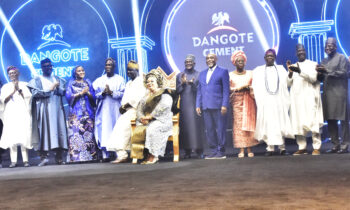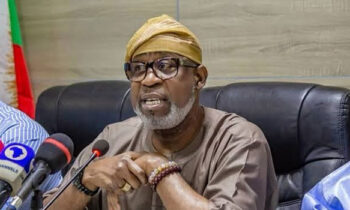Tilewa Adebajo, a renowned financial expert and prominent public intellectual, has expressed concern over the National Assembly’s discreet endorsement of President Bola Ahmed Tinubu’s request to securitize Nigeria’s Ways and Means advances.
This covert approval effectively legitimizes the conversion of a substantial portion of Nigeria’s Ways and Means indebtedness into bonds and other securities, with the government issuing treasury bills and bonds to settle the Ways and Means advances.
Adebajo highlighted the alarming escalation of Nigeria’s Ways and Means indebtedness, which has exceeded N30 trillion, far surpassing the prescribed limit of N1 trillion. This accumulation contradicts Section 38 of the Central Bank of Nigeria Act, which dictates that the Central Bank can provide overdrafts to the government, but such overdrafts should not surpass five percent of the government’s revenue from the preceding year. Adebajo asserted, “The Senate’s approval of the securitization of Ways and Means advances goes against the legal framework.”
Speaking at the Audit Reporting Training organized by the FrontFoot Media Initiative, held on October 25-26, 2023, at the GulfView Hotel in Ikeja GRA, Adebajo expressed concerns about how this action would further burden Nigeria with debt. He also criticized the Senate for approving this measure discreetly, as it was not listed in the Senate Order Paper when it passed.
Adebajo noted that Nigeria’s deficit is increasing annually, with an overwhelming 95% of the country’s revenue going toward servicing debt. He urged the media and professional groups to play a more active role in denouncing financial misconduct and the wrong direction of government spending, as the average citizen is often preoccupied with their own financial struggles.
Emphasizing the importance of transparency and accountability, Adebajo encouraged citizens to closely scrutinize Nigeria’s financial management. He advised, “Whenever there’s a budget, request the audited accounts for the same year for comparison. What were the planned actions? What was actually achieved? What were the revenue projections? What were the actual revenues? What was the expected expenditure, and what was the actual expenditure?”
Emeka Izeze, director and partner of the FrontFoot Media Initiative, underlined the significance of the Audit Reporting Training program, which is conducted in collaboration with the Wole Soyinka Center for Investigative Journalism and sponsored by the MacArthur Foundation.
The Lagos workshop marked the fourth in a series aimed at equipping the media to critically examine audit reports for their crucial insights. Previous workshops were conducted in Benin, Awka, and Abuja, FCT.
Anthonia Obokoh





